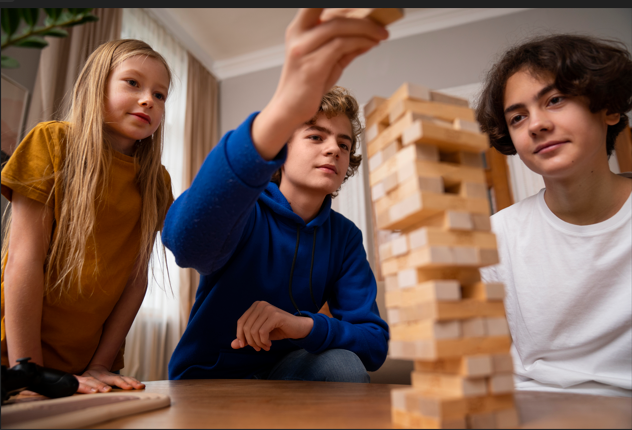The common misconception that play is the antithesis of serious study permeates the halls of academia. However, recent research challenges this notion, presenting play as an invaluable complement to rigorous intellectual endeavors. The interplay of recreational activities with structured learning cultivates a fertile environment for cognitive and emotional growth. Understanding this dynamic is crucial for students striving to reach their full potential without compromising their well-being. In this article, we will dive into the roles and benefits of play in the context of academic life.
Table of Contents
Strengthening Academic Performance Through Structured Downtime
One might think uninterrupted study maximizes academic outcomes, but research suggests the opposite. Structured downtime, which includes periods of play, can actually enhance concentration and memory retention. Incorporating breaks filled with play allows the mind to rest and reset, improving focus during study sessions. Overloading the brain without respite can lead to cognitive fatigue, diminishing the quality of learning.
In higher education, where the demands are intense and the stakes are high, students often neglect downtime. Yet, it’s during these times of leisure, like engaging in free slots, that the brain assimilates and makes sense of the learned material. This rhythmic alternation between study and play is essential for knowledge to crystallize into long-term memory.
When it comes to managing extensive syllabi, play can help in breaking down overwhelming amounts of information into digestible segments. Students who intersperse their academic tasks with intervals of play are better equipped to tackle large volumes of work systematically, thereby preventing burnout and maintaining academic stamina.
Keep reading latest news and update: dirtyship.co.uk
Balancing Academic Rigor With Play: Strategies for Students
For students caught in a cycle of perpetual study, incorporating play can seem daunting. A practical strategy is to allocate segments of the day specifically for recreational activities. Setting aside time for hobbies, social interaction, or even physical play, like sports or dance, can act as a counterbalance to intense study periods.
Another approach is to integrate play into the learning process itself. Educational games, simulations, and interactive learning platforms can make the acquisition of complex academic content more stimulating and less strenuous. This not only enlivens the study experience but can also deepen comprehension and encourage engagement with the material.
Institutions have a role to play by fostering environments that encourage a healthy work-play balance. Universities that offer the best online MBA programs with extracurricular activities, provide game rooms, or host student events are helping pupils infuse play into their academic lives. These initiatives are critical in recognizing the holistic needs of students beyond their scholarly pursuits.

The Impact of Play on Stress Management and Mental Health
Academic life can be laden with stress, and without proper management, it can take a toll on students’ mental health. Incorporating play into their routine can act as a stress-reliever by providing a mental sanctuary from the pressures of academia. Play promotes relaxation and can reduce anxiety levels, contributing to a healthier mental state.
Playful activities encourage the release of endorphins, the body’s natural feel-good chemicals. These biochemical reactions can alleviate feelings of depression and foster a sense of happiness. For students navigating the high-stress environment of higher education, play can be a much-needed source of emotional support and psychological relief.
Beyond immediate stress relief, play contributes to building resilience and emotional strength. Facing challenging circumstances, students who regularly engage in play demonstrate superior coping mechanisms. Coping skills are particularly important during quantifiable performance evaluations, such as exams, where the capacity to handle pressure can determine the outcome. /

Play as a Tool for Enhancing Creativity and Problem-Solving Skills in Students
Amid the rigors of academia, creativity and problem-solving skills are highly sought-after competencies. Play naturally enhances these skills by providing a dynamic environment where experimentation and innovation are encouraged. Through play, students can express themselves freely and explore alternative solutions without the fear of judgment or failure.
Playful exploration segues into academic tasks, fostering a mindset conducive to creative thinking. Students who engage in regular play tend to approach academic challenges with a broader array of perspectives. This flexibility can result in more inventive solutions and novel approaches to learning assignments or research projects.
Altogether, the fusion of play and academia is not only beneficial but necessary for a well-rounded educational experience. Embracing the value of play in the life of a serious student enhances cognitive functions, boosts performance, and supports mental health, fundamentally contributing to the nurturing of resilient, creative scholars. Overall, a balanced integration of play offers a path to academic success that is enriching and sustainable for students at any educational level.



